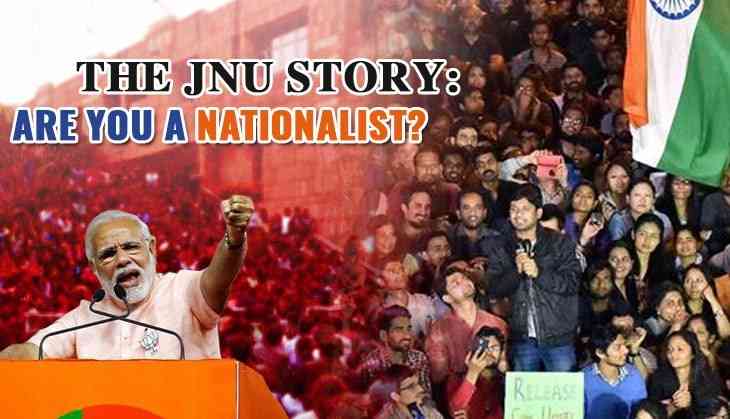
‘Nationalism is a form of emotion which sucks adequate expression.’
The Jawaharlal Nehru University has been India’s premiere institution in many disciplines and has attracted students from across the globe. Although, in 2016, an incident rocked the campus and brought JNU under pessimistic limelight.
Nationalism, Patriotism, Student Union, Anti-National, Sedition, Azadi, Freedom of Expression, Democracy are some of the terminology which had become synonymous while discussing the infamous JNU issue, which had brought the dividing line of media on surface and the process of tagging news channels and anchors had begun.
February 9 2016, a group of student were commemorating the 3rd death anniversary of Parliament attack convict Afzal Guru, who was hanged in 2013. The JNUites gathered were against the capital punishment and were demanding to abolish the rigorous law, claiming that Afzal Guru was ‘murdered through judicial process.’
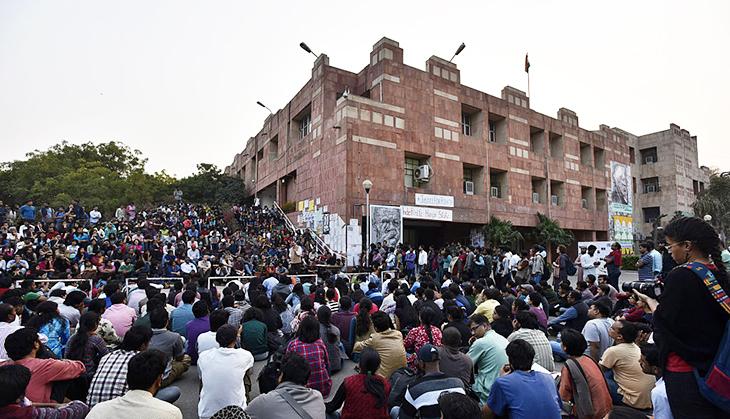
A video was leaked from the university campus, where ‘anti-India’ slogans were being raised and it was claimed that those shouting were students of the JNU. The video was telecasted by a news channel and on the basis of this and other circumstantial evidence, the Delhi Police arrested then JNU Student Union President Kanhaiya Kumar.
2 more student union leader, namely Umar Khalid and Anirban Bhattacharya were on the radar but they escaped and went underground. Although, both the students surrendered after two weeks at Delhi’s Police Station.
But, the media was ready to conduct its trial and the noise making channels declared the JNU and its students as ‘anti-national,’ the battle of perception was being fought on the grounds which were never on a leveling field. Kanhaiya Kumar was booked under Section 124A of the Indian Penal Code, which states Sedition, under which Bhagat Singh, Mahatma Gandhi and many other famous freedom fighters were jailed during the British era.
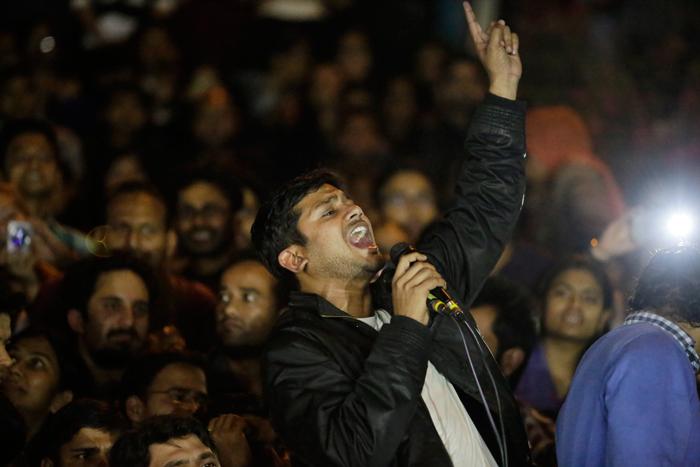
Post this incident, data showed that there has been a considerable decline in the admission of the JNU and it affected the goodwill and ruptured the image which the university had earned over a period of time.
Facts of the matter remained that the video which surfaced was ‘doctored’ as per the Forensic Lab report, all 3 students who were arrested by the Delhi police were given regular bail by the Delhi High Court and since then, the police has been violating the deadline to file the chargesheet.
Now, 3 years down the line, when Delhi Police indicts all charges and completes the investigation and files the chargesheet in the Sedition case, the High Court rejects it on the grounds that prior permission was not taken from competent authorities under Delhi government led by Aam Aadmi Party.
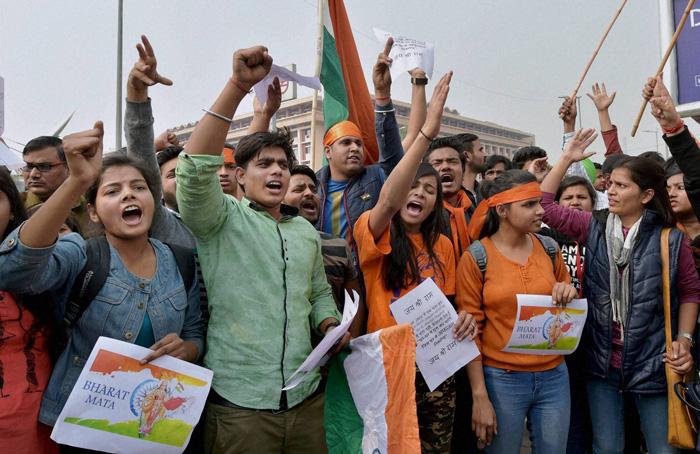
So, what was the discussion all about? What is nationalism, which has become a fashion these days, and is being carried on the sleeves of the shirt? Certificates are being distributed (non-tangible) by right-wing groups and political party’s to certify that an individual is a nationalist and doesn’t become another ‘Kanhaiya.’
Rabindranath Tagore, in his famous essay ‘Nationalism in India’ had elaborated why it can be a menace for the society and a plague which might harm the common man by enforcing a certain ideology over him. “Nationalism is a menace,” he had said. Oliver Goldsmith in his essay ‘National Prejudices’ had clearly written that it’s the mechanized form of nationalism which will hamper our life and society in the long run.
Goldsmith expressed stating, “Should it be alleged in defense of national prejudice, that it is the natural and necessary growth of love to our country, and that therefore the former cannot be destroyed without hurting the latter, I answer, that this is a gross fallacy and delusion. That it is the growth of love to our country, I will allow; but that it is the natural and necessary growth of it, I absolutely deny.”
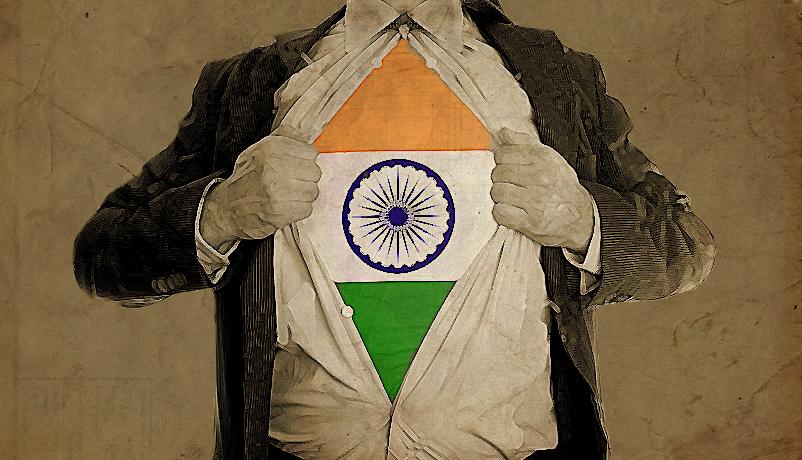
Do we have to stand up every time national anthem is played in movie halls and on television sets to exert and express our love towards the nation? Or on contrary, to respect the national anthem, one must stand-up?
The answer lies in the form of mechanized nationalism our country infiltrates in the children while they are grasping knowledge in schools. We are trained in schools to stand-up every time national anthem gets played, respect the flag even after 26th January or 15th August etc. The child was never given a choice and therefore, cannot decide upon the outcome logically.
This kind of militarized and belligerent nationalism has shown to be harmful in the future course of a society like India, where the social fabric is woven with a minute thread, ready to break-off any moment.
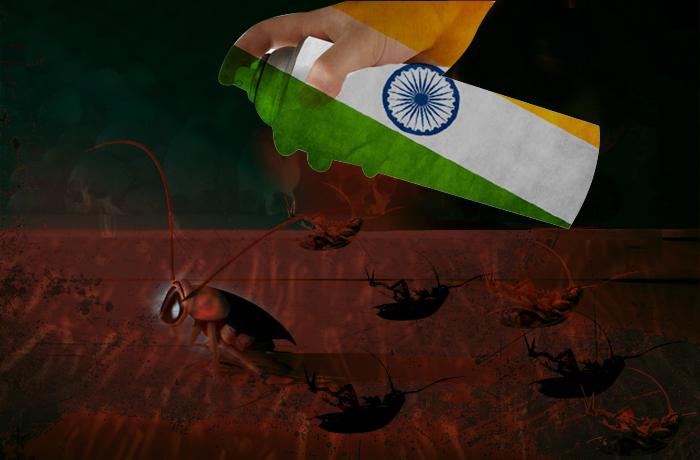
Shouting ‘Bharat Mata ki Jai’ and exerting nationalism at every juncture doesn’t make one nationalist, instead a force of bigotry starts getting manufactured. JNU was never an issue and Kanhaiya Kumar became a ‘national hero’ due to reactive nature of Delhi Police or the Ministry of Home Affairs.
Criticizing the national and government policies doesn’t make an individual anti-national. JNU still remains the premiere university of India but the politics earned its points and media suffered the blow. Who lost? The perception battle amongst the middle class changed, fringe groups took to road and tolerance level had taken a plunge.
Although, one must understand that university is a place to discuss, debate and have a discourse on each and every topic whether its against the government or any nation.
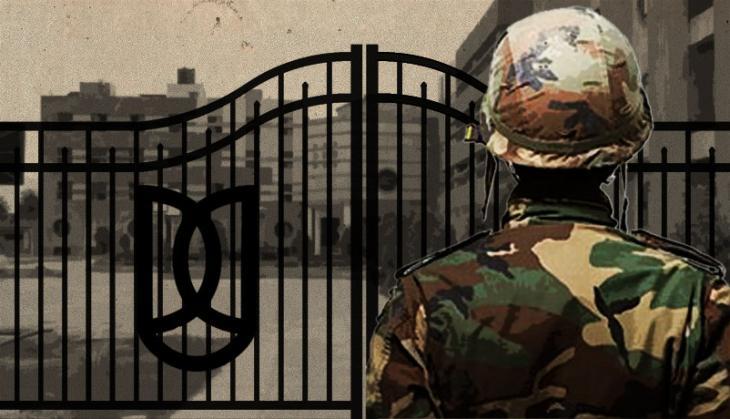
It was the Supreme Court which had to take a stand on the issue of national anthem being played out in theaters, where Justice D.Y Chadrachud in a landmark verdict said, ‘There is no need to wear nationalism on your sleeves, and it must not be made mandatory for the movie halls to play national anthem.’
It was a blow for the government, which has somewhere believed that it’s the dominance of 1 language which matters, instead, there is an urgent need to balance tradition and modernity.
JNU was never an issue, it was carved out smartly to be one of them. ‘Ever wondered why you are patriotic? Because that’s what they want?’
Also read: Rafale row: Police complaint registered against PM Narendra Modi in Rafale deal by AAP MP
First published: 9 February 2019, 13:41 IST

